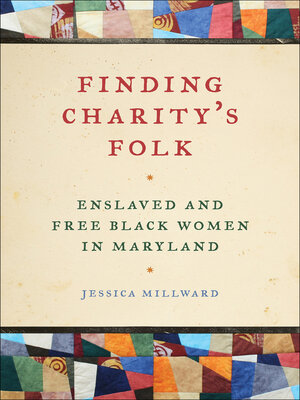Finding Charity's Folk
ebook ∣ Enslaved and Free Black Women in Maryland · Race in the Atlantic World, 1700–1900
By Jessica Millward

Sign up to save your library
With an OverDrive account, you can save your favorite libraries for at-a-glance information about availability. Find out more about OverDrive accounts.
Find this title in Libby, the library reading app by OverDrive.



Search for a digital library with this title
Title found at these libraries:
| Loading... |
Finding Charity's Folk highlights the experiences of enslaved Maryland women who negotiated for their own freedom, many of whom have been largely lost to historical records. Based on more than fifteen hundred manumission records and numerous manuscript documents from a diversity of archives, Jessica Millward skillfully brings together African American social and gender history to provide a new means of using biography as a historical genre.
Millward opens with a striking discussion about how researching the life of a single enslaved woman, Charity Folks, transforms our understanding of slavery and freedom in Revolutionary America. For African American women such as Folks, freedom, like enslavement, was tied to a bondwoman's reproductive capacities. Their offspring were used to perpetuate the slave economy. Finding loopholes in the law meant that enslaved women could give birth to and raise free children. For Millward, Folks demonstrates the fluidity of the boundaries between slavery and freedom, which was due largely to the gendered space occupied by enslaved women. The gendering of freedom influenced notions of liberty, equality, and race in what became the new nation and had profound implications for African American women's future interactions with the state.






